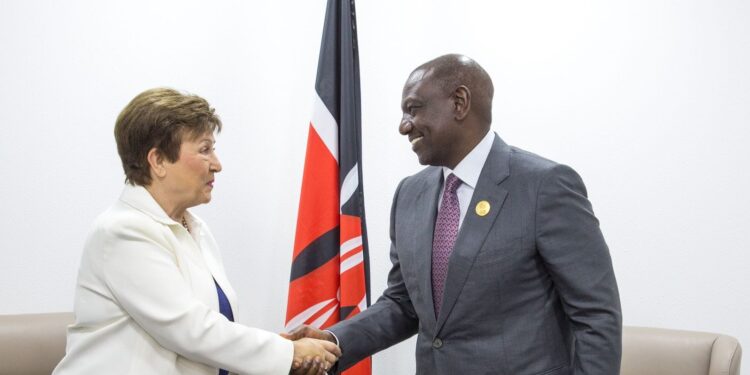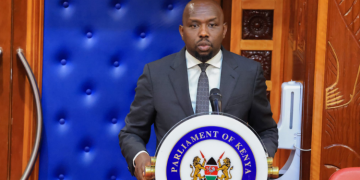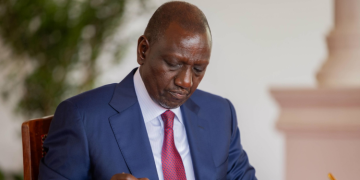Deputy President (DP) Kithure Kindiki has recognized the work of Dr. Fred Matiang’i during his tenure as Cabinet Secretary (CS) for Interior and National Coordination.
Speaking on Friday, March 28, Kindiki said the ‘Shirika Plan for Refugees and Host Communities’ that was launched at State House was not his original idea.
Kindiki said Dr. Matiang’i started the plan and clarified that he only picked it up when President William Ruto appointed him as Interior CS.
He explained that his team made a few adjustments to the Plan before handing it over to current Interior CS Kipchumba Murkomen.
“Let me make a disclaimer that this wonderful document that we are launching today was started by my predecessor at Harambee House. It is not my invention; I found it there. I made some input to it together with the team and we handed it over to the current Interior CS,” he said.
Kindiki, who is a professor of law, said he had to credit Matiang’i as a sign to academic honesty.
“I thought I should clarify as a sign of intellectual and academic honesty that it is not my invention,” he said.
Speaking during the event, President Ruto said the government started rethinking the relationship between refugees and host communities because of the difference in access social services like health and education.
“There was an emerging tension between the host communities and refugees and became necessary for us to rethink the way the host communities were relating to the refugees and the need to harmonize that relationship by harmonizing the living conditions of the two groups,” Ruto said.
Details of the Plan Kindiki is Referring To
The Shirika Plan is a multi-year initiative which aims to promote the socioeconomic inclusion of refugees in Kenya by transforming camps into integrated settlements for both refugees and asylum seekers.
It seeks to alleviate pressure on hosting communities and enhance self-reliance for both refugees and host communities.
Additionally, the Plan encompasses various sectors such as education, health, livelihoods, social protection, and environmental management.
“This plan is a response by the government of Kenya on how we can translate refugees and the host community’s relationship into a win-win situation,” Ruto added.
Cabinet passed the Plan on March 11 terming it as a transformative framework shifting Kenya’s approach from humanitarian aid to a development-focused model to address refugee management.
“The plan seeks to integrate refugees into host communities by transforming camps into sustainable settlements equipped with essential infrastructure, resources, and economic opportunities,” reads part of the Cabinet dispatch.
Also Read: Raila Takes Stand on Matiang’i Vying for President
Partners of The Shirika Plan
The government will work with the United Nations High Commissioner for Refugees (UNHCR), non-governmental organizations (NGOs), faith-based organizations and development partners to implement the Plan.
“The Plan’s strategy to transform refugees’ camps into integrated settlements gives inclusion a new expression by promoting the creation of opportunity in a manner that intentionally benefits refugees and host communities in the same way,” Ruto explained.
The launch has been facing resistance that led to the postponement of its launch from November 2024.
Also Read: Parliament Clarifies Vetting of Matiang’i, Sifuna and Muhoho Kenyatta
MP Opposes Plan
Daadab MP Farah Maalim termed the plan bad and President Ruto not to launch it.
Maalim said the hosting communities of refugees are not ready for integration.
Additionally, he stated that most refugees would opt for voluntary repatriation with generous assistance to enable them to reintegrate back in Somalia.
Follow our WhatsApp Channel and X Account for real-time news updates.
![Uhuru Attends Matiang'i Daughter Wendy’s Wedding [PHOTOS]](http://thekenyatimes.com/wp-content/uploads/2024/12/Untitled-design-2024-12-28T072050.186.png)









































































